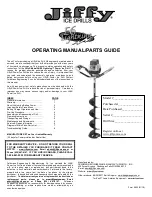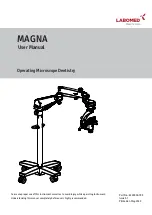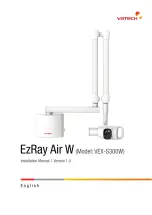
90
60
30
0
90
60
30
.
. . . .
.
Remove After Thig
h Sh
ell P
lac
e
90
60
30
0
90
60
30
.
. . . .
.
Remove Afte
r Thigh Shell Pla
cement
90
60
30
0
90
60
30
.
. . . . .
90
60
30
0
90
60
30
.
. .
.
.
.
38”
97cm
36”
91cm
A
J
B
D
90
60
30
0
90
60
30
.
. . . .
.
Remove After Thigh Shell Placement
E
C
ENGLISH
BEFORE USING THE DEVICE, PLEASE READ THE FOLLOWING INSTRUCTIONS
COMPLETELY AND CAREFULLY. CORRECT APPLICATION IS VITAL TO THE PROPER
FUNCTIONING OF THE DEVICE.
注記:機能や強度、耐久性、快適性を最適化できるよう最先端技術によりあらゆる努力が払われていますが、本
製品の使用により負傷が予防されるという保証はまったくありません。
プルタブ長の調整 (オプション)
11.
プルタブの長さを短くするには、プルタブポケットからレーススプール
を取り外し、スプールの周りにレースを巻きます。プルタブを長くする
には、スプールから巻かれているレースをほどきます。(
図K)
ブレースの固定 (オプション)
12.
臨床医は、必要に応じて股関節の屈曲/伸長可動域を固定することが
できます。骨盤シェル内側についているネジの位置を確認して、
付属の工具を使用して締めます。(
図
L
)
パッドの追加
13.
必要に応じて、図のように大腿部中央パッドを付けます。(
図
M
)
ブレースを外す
14.
股関節ブレースを外すには、ウエストベルト側面のプルタブを外し、
ベルトと大腿部カフを外します。股関節ブレースを外します。
清浄手順:
中性洗剤を使用して、水 (
86
°
F
/
30
°
C
) で手洗いします。
自然乾燥させます。
注意
:すすぎが不十分だと、残った洗剤による皮膚の炎症や
製品素材が劣化する原因になることがあります。
洗濯機で洗わないでください。
アイロンをかけないでください。
乾燥機を使用しないでください。
漂白しないでください。
材料:メッシュ:
ナイロン、
スペーサー:
ポリエステル、
バインディング:
ポリ/綿。
保証:
DJO
,
LLC
は、材料や工程の不具合に対しては、購入日から
6
ヶ月間
に限りユニットおよび付属品のすべてまたは一部を修理あるいは交換しま
す。本保証が現地規制と矛盾する範囲については、当該現地規制の規定が
適用されます。
医家向。
1
人の患者に限り使用できます。
天然ゴムラテックス不使用。
2
31
INTENDED USER PROFILE:
The user should be able to:
•
Read and understand the directions, warnings and cautions.
INTENDED USE/INDICATIONS:
Post-Op use following minimally
invasive hip procedures; Labral repair, with or without gluteus
medius repair; ROM control following primary or hip revision
surgery; Post-op use following proximal hamstring repair.
CONTRAINDICATIONS:
Pulmonary, cardiovascular or skeletal
conditions which have risk to be made worse as a result of
compression and/or pressure, unstable, displaced fractures.
WARNINGS AND CAUTIONS:
If you experience any pain, swelling,
sensation changes, or any unusual reactions while using this
product, consult your medical professional immediately.
APPLICATION INFORMATION:
For best results, fit patient prior to
surgery.
SIZING:
The VersaROM Hip fits most waists 25”–53” (64cm–135cm)
1. Measure the waist at the level of the navel.
2. Align the edge of the rear belt component to a mark on the
measurement strip corresponding to the waist measurement
taken. Fully reengage both components. (
Figure A
)
3. For patients with a waist UNDER 34” (< 86cm): Disengage the
side wings from the rear belt components. Remove & discard
side wings (
Figure B
). Reattach the modified belt component to
the rear belt component. If the waist belt is trimmed, locate the
two black, hook and loop adapters in the packaging. Attach the
hook and loop adapters to the rear belt to cover any exposed
hook and loop area.
Note:
For patients with a waist over 53” (> 135 cm) an extension
belt is included in the packaging.
APPLICATION INSTRUCTIONS:
4. Wrap the waist belt approximately 1” (2.5cm) above the widest
part of the hips and secure the hook and loop attachment on
the front side of the patients. (
Figure C
)
5. Prepare pelvic shell and hinge assembly for placement. Set the
flexion and extension stops by pressing the center button on
the face of the hinge and moving each respective tab to the
desired positions. (
Figure D
)
Note:
Make sure the center button returns to a fully locked
position. A click sound may be heard and the center button
protrudes when locked.
6. DO NOT remove the “peel away” red tab on the pelvic shell
or the red “protective strip” found on the thigh component.
Position the pelvic shell and hinge assembly so it is centered
laterally with the top aligned just below the top edge of the
belt assembly, reposition if necessary. (
Figure E
)
Note:
There are two pivot changes. One pivot change is
located above the range-of-motion and other is located below
the range-of-motion. Pushing the recessed buttons at the
center of each pivot, changes the abduction/adduction angles,
allowing for the desired angle with the least amount of hinge
protrusion. (
Figure F
)
7. Once the pelvic component is positioned correctly, peel
away the red tab from the pelvic shell and fully engage the
hook-and-loop wings. (
Figure G
)
F
K
M
G
H
I
L



































